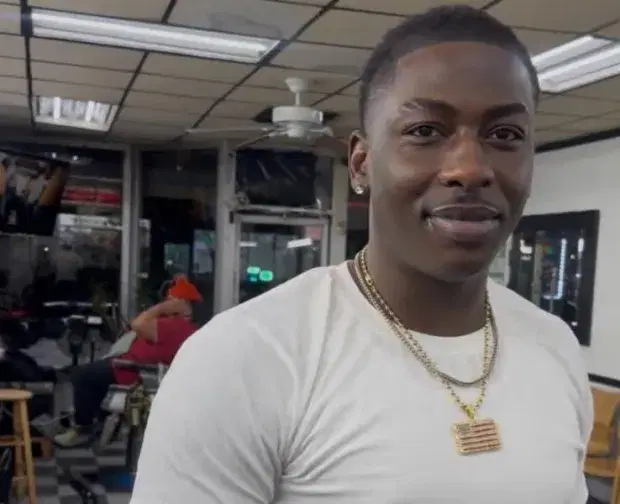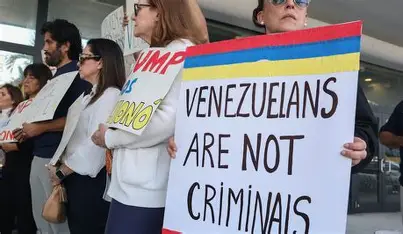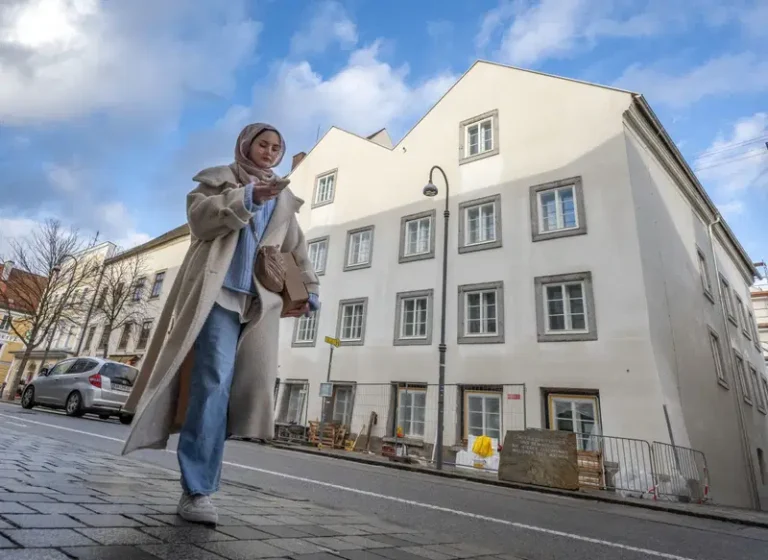Will Nnamdi Kanu’s arrest be the balm that will heal the insecurity crisis in parts of the Southeast? Or will it lead to more violence? Leaders and other residents of the region share their hopes, fears and suggestions for the Federal Government with
When on June 1 President Muhammadu Buhari promised to shock those promoting insurrection and destroying critical national assets, many Nigerians assumed the worst.
Secession agitations had been gaining momentum in the Southwest and Southeast, while banditry had overtaken Boko Haram and herders-farmers violence in the middle belt and other northern regions.
No fewer than 127 police and security personnel had also been killed in the Southeast and more than two dozen police stations razed, by the infamous “unknown gunmen.”
They were suspected of being members of or affiliated with the Eastern Security Network, the paramilitary wing of the Indigenous People of Biafra (IPOB).
So, the Federal Government, it was feared, was threatening to unleash unprecedented violence on the country’s trouble spots.
“Whoever wants the destruction of the system will soon have the shock of their lives. We’ve given them enough time,” Mr Buhari said.
The threat – taken seriously by most Nigerians – was particularly heightened in the Southeast, following Buhari’s reference to the brutal Biafran civil war which led to the death of about three million people, mostly Igbos.
The President made no mention of any particular group in his tweet.
“Those of us in the fields for 30 months, who went through the war, will treat them in the language they understand. We are going to be very hard sooner than later,” the President said in a tweet.
His subsequent clarification on democracy day that he meant organising “the police and the military to pursue them,” was taken by many with a pinch of salt.
Some Nigerians also felt the President added fuel to the Southeast fire by his “IPOB is just like a dot in a circle,” comment.
But not many could have imagined the incredible turn of events that followed Buhari’s pledge.
Rather than scale up a military response, the president sent the Inspector General of Police’s Intelligence Response Team (IGP-IRT) after the unknown gunmen, particularly in Imo State, which had borne most of the brunt of the attacks.
The IGP-IRT hit the ground running to spectacular success, smashing hideouts at every turn and unmasking unknown gunmen one after the other.
But the coup de grâce, from the Federal Government’s point of view, was unveiled on Tuesday: IPOB leader Kanu Nwankwo in cuffs, lured out of hiding abroad and apprehended and whisked home to the ‘Zoo’, as he often called Nigeria.
Details of his arrest and ‘extradition’ are unfolding, but he was brought back to Abuja on Sunday in an “unconventional way”, according to sources.
The Umaru Dikko saga
The rumour mill has been agog with theories surrounding how he was nabbed and transported back to Abuja.
His younger brother, Emmanuel, claimed on Wednesday that Kanu was arrested in Kenya. Others claimed he was arrested in a Brazil hotel room where he had gone to meet a beautiful female interest, or that he was arrested in Addis Ababa, the Ethiopian capital.
However, he was arrested, Kanu was not the first prominent Nigerian to experience an unconventional mode of travel.
Thirty-seven years ago, the Federal Government led by the then Major-General Muhammadu Buhari almost executed what would have been one of the most sensational kidnapping and illegal deportation in espionage history.
Now known globally as “The Dikko affair”, it was a joint Nigerian-Israeli attempt to kidnap Umaru Dikko, a former transportation minister under former President Shehu Shagari, whose term was cut short by a Buhari-led coup d’é·tat on New Year’s Eve in 1983.
Having fled into exile in London following the coup by the new military regime, Dikko was seized outside his London home in July 1984 by Nigerian undercover agents, who were assisted by an Israeli doctor and a diamond trader, both agents of Israeli intelligence agency Mossad.
The operation was coordinated by Mossad.
Dikko was whisked into a van and taken to Stansted Airport in Essex, where a Boeing 707 cargo aircraft from Nigeria waited to repatriate him to his home country. He was handcuffed, drugged, and chained into a crate by his captors, who put the doctor by his side to ensure that his breathing was maintained through a tube.
It was a telephone call to police by Dikko’s secretary—who had witnessed her boss getting dragged into the van as she glanced out of her window—that eventually led to customs officials opening the crate in the presence of an official Nigerian government representative and discovering the former minister, who was then rushed to hospital for treatment, his captors arrested.
How will Kanu’s arrest affect Southeast security?
After Dikko’s kidnap was foiled, the political fallout seriously damaged relations between Nigeria and the United Kingdom for years.
But at home, the fallout was relatively inconsequential.
Now that Kanu has been brought back home and remanded for the continuation of his treason trial, the question on many Nigerians’ lips is what is the consequence of his arrest on security in the Southeast? Is IPOB now weakened? Will security improve in the region or will his arrest trigger more violence?
Views were divided among those who spoke to The Nation in the region.
Kanu’s arrest alone won’t end agitation in Southeast, say Enugu residents
Around Enugu metropolis, there was uneasy calm following news of the arrest of the IPOB leader.
People were seen in public places especially at parks, newsstands, restaurants and bars discussing Kanu’s arrest.
The arrest, they said, would reduce violence, but would not end agitations in the Southeast.
According to them, the arrest would do little or nothing to deter other pro-Biafra groups from pursuing the secession dream.
They said while the violent aspect of the agitations had been taken care of following the interventions of some Igbo leaders, the struggle for the secession would only be stopped when the federal government adopts politics of inclusiveness, justice, fairness and equality.
‘God’s army will liberate Biafra, not IPOB or Kanu’
One of them, the Ministerial leader of the World Zionist Union in Southeast Nigeria, Prophet Godfrey Gbujie, said: “Though we’re not happy the manner Nnamdi Kanu was arrested, there’s nothing unusual about his arrest because of the kind of struggle he is into. Anyone involved in this kind of struggle should be a regular visitor to prison. So, there’s nothing unusual about it. Again, he is not the initiator of this struggle. He only joined the struggle through MASSOB (Movement for the Actualization of the Sovereign State of Biafra).
“But, I want to tell you that this struggle is more spiritual than socio-physical. God has an army that will liberate Biafra and not through IPOB or Nnamdi Kanu. But all the agitators are doing their bit anyway. Kanu’s trial will go on while the struggle continues”.
On whether Kanu’s arrest would stop the current wave of violence, Gbujie said already the violence had been taken care of long before Kanu’s arrest following a lot of interventions in various quarters.
“I can assure you that there won’t be any violence anymore, not because of his arrest, though. Every reasonable Igbo got angry with what IPOB did recently, killing policemen and burning police facilities that communities themselves built for their security. Those properties were never built by government either state or federal”.
‘Kanu’s repatriation good for Igboland’
But the metropolitan Archbishop of Enugu Anglican Province, Most Rev. Emmanuel Chukwuma described Nnamdi Kanu’s repatriation back to Nigeria as a good development for Igboland.
Archbishop Chukwuma stated that with his extradition, the ongoing violence in the southeast would be highly reduced.
His words: “I think his extradition is a good development. It will bring a little bit of calm and peace to the boys he has been instigating and to Igboland in general so that we can have a peaceful atmosphere”.
He expressed sadness that despite the warnings from various Igbo leaders and groups, Kanu found pleasure in staying abroad and instigating people to cause confusion.
“We warned him severally to stop that. It’s not only that, we felt that if you are a leader and you are part of the problem of Nigeria, you should come down here so we can discuss with others on how to solve the problem.
“First of all, settle this case for which you jumped bail”, Chukwuma said.
Arrest could heighten tension – Ebonyi residents
In Ebonyi, the spokesperson of Alaigbo Development Foundation, Chief Abia Onyike expressed worry that Kanu’s arrest could heighten tension.
Onyike hinged his fear on the fact that IPOB has a large following in the state and region that were very loyal to Kanu.
He said the manner of the arrest and detention of Kanu may worsen rather than reduce the tension and called for vigilance to ensure that some persons don’t capitalise on the situation to unleash mayhem.
Onyike said: “I think so because the man has very loyal supporters and they are not taking kindly to the arrest.
“There was a protest in Port-Harcourt and that shows that everybody should be very prepared to make sure that the thing doesn’t spread negatively.
“The way they brought him back and detaining him is making him more popular and it doesn’t even solve the problem. If anybody thought that it would reduce the tension in the Southeast, I think they got it wrong”.
Kanu’s trial must meet international best practices or… Abia residents warn
Residents of Aba, the commercial nerve of Abia State and their Umuahia (the state capital) counterparts have advised the federal government against acts that could heighten insecurity in the country.
They warned that the federal government should ensure that the trial of Kanu meets international best practices.
They further warned that any negative news about the handling of Kanu’s case could trigger unrest in the region.
They observed that the Abia was charged with IPOB members and sympathisers of Kanu and his ideology already threatening to unleash mayhem if anything happened to their leader.
One of them, Mr Ike Chibuike disagreed with those saying that Kanu’s retrial may trigger unrest in the region,
Nevertheless, he called on the federal to try and address some of the issues that gave rise to the agitation being championed by Kanu and his supporters.
Chibuike said he was abruptly forced out of the commercial tricycle he boarded to his office yesterday morning because he tried to justify the federal government’s action.
He reasoned that the Igbos felt that the Federal Government should channel the energy and intelligence used in arresting Kanu to the war in the Northeast.
‘Fears that Kanu will be killed in prison’
A social analyst, Chief Ben Okoro cited the incidents that led to the death of the original Boko Haram leader (Yusuf), arguing that Nigeria still suffers the consequences to date with international collaborators joining Boko Haram to wreak havoc.
He warned that Kanu’s trial must be properly handled to avoid any international collaborators cashing in on the situation to cause more security challenges in Nigeria.
Okoro said: “We all know how Boko Haram started and where they have kept Nigeria today.
“There is no doubt that the IPOB has got international collaborators who are willing to assist them with weapons.
“The international community are also monitoring the situation, which is why the government should ensure that Kanu gets a fair trial and best treatment and protection as fears are ongoing that the federal government may be planning to kill him (Kanu) in prison.
“Kanu is also a British citizen and may so wish to serve his jail term in the UK if he feels that his life in danger.
“The southeast is charged since the re-arraignment of Kanu in court yesterday. We have too many things on our hands. Government should ensure that peace is restored and to allow for the rehabilitation of police stations that were attacked by the unknown gunmen.”
‘Kanu’s arrest won’t cause unrest in Anambra’
There were mixed reactions in Anambra State, following Kanu’s arrest.
Some leaders in the state said a fair trial was critical to maintaining peace.
A Community leader in Ndiukwuenu, Awka, Prince Ezechukwu Nwankwo, told The Nation, that if such happened, there won’t be any form of unrest in the Southeast
“The arrest of Mazi Nnamdi Kanu will not cause any kind of unrest in Igboland now, depending on how fair his trial will be.
“If he is tried with fairness and within the provisions of the law, then there won’t be any likelihood of unrest,” Nwankwo said
Also, the State Coordinator, Transform Nigeria Movement, Obi Ochije, said Ndigbo would not revolt if the government treats him like a human being
“He is still innocent until found guilty and that should be left to his team of lawyers to handle.
“I don’t think there is a need for anyone to panic because the possibility of his arrest causing mayhem is not there. What Ndigbo need is to pray for him,” Ochije said
A political leader Chief Silas Okafor cautioned the federal government to be gentle on Kanu despite his excesses
He said, “No right-thinking Igbo will like to cause problems because of Kanu. The people have gone through hell in the past few months and will not like to go through such road again.” (Adapted from The Nation)








540790 330044Youd outstanding guidelines there. I did a search about the field and identified that very likely the majority will agree with your web page. 210591
705292 563516We are a group of volunteers and opening a new system in our community. Your internet web site given us with valuable details to work on. Youve done an impressive job and our entire community will be grateful to you. 122475